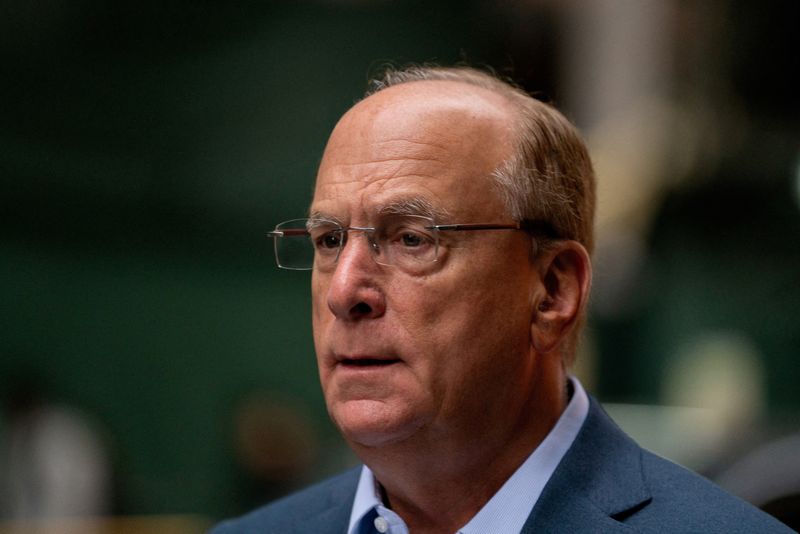Bluebell Capital displace BlackRock from market
2022.12.08 04:26
[ad_1]

Bluebell Capital displace BlackRock from market
Budrigannews.com – An attempt by Bluebell Capital Partners to replace BlackRock Inc. (NYSE:) Even though its push for changes faces long odds, CEO Larry Fink represents the small activist hedge fund’s boldest bet that its punch-above-weight strategy could result in a financial win.
Bluebell has challenged the policies and executives of some of the world’s largest companies, including Glencore (OTC:) and GSK Plc, in the three years since its launch. Vivendi (OTC:) and Plc Danone SA and SE (OTC:), while holding extremely low stakes.
Bluebell’s most notable accomplishment to date occurred at Danone, where it assisted in the removal of a chief executive. It also received a lot of attention from the media for taking on large corporations while only managing $250 million in assets.
Reading Airbus A321 XLR has received US approvals
However, the corresponding investments frequently increased Bluebell’s profits even when the company was unable to claim victory; Since its inception, its Bluebell Active Equity Fund has returned 21.3%, and in November, it was up about 2% for the year.
Hedge Fund Research data indicate that, in comparison, the typical activist hedge fund was down 14% for 2022 in November.
Bluebell has asked BlackRock to let go of Fink, who has become a major player in sustainable investing and regularly meets with world leaders. BlackRock has refused to do so. Bluebell has also not received a response from BlackRock regarding its request to reorganize its board and examine its ESG strategy.
On Wednesday, a spokesperson for BlackRock refused to provide any information.
Bluebell has at least placed a bet on a company that has performed well in the past, so even if BlackRock does not make any concessions, it will have done so. BlackRock shares performed similarly to or better than their rivals up until the previous year. Since their initial public offering in 1999, the shares have increased by nearly 5,000%. During that time, the increased by 206%.
Bluebell voiced her displeasure with a number of BlackRock’s ESG initiatives in a letter to the company dated November 10 that was made public this week. Among the issues Bluebell raised were the company’s overly political approach to sustainable investing. BlackRock’s handling of its exposure to thermal coal companies was also criticized by Bluebell for its contradictions.
Bruno Schneller, managing director of investment firm INVICO Asset Management, stated, “I can’t imagine them being successful” in obtaining concessions from BlackRock. He noted that Bluebell owns only 0.01% of BlackRock and that there have been no concerted investor calls for Fink to be replaced.
Giuseppe Bivona, chief investment officer of Bluebell, stated in an interview with Reuters that the issues his company had raised were a “concern broadly shared,” but he declined to name BlackRock shareholders who shared his views.
Certainly, when they appeal to investors’ ESG concerns, small funds have occasionally been successful in influencing significant changes at companies in which they hold a small stake.
Last year, small fund Engine No. 1 was able to replace three ExxonMobil (NYSE:) with enough support from shareholders. Directors of the corporation argued that the oil major was not moving quickly enough to transition away from fossil fuels after purchasing a mere 0.02% stake in the business.
However, Engine # 1 received support from other Exxon shareholders, such as the influential pension fund California State Teachers Retirement System, which resulted in a wave of shareholder revolt. At BlackRock, there has not been a similar show of support for Bluebell.
Bivona and Marco Taricco, both former employees of Goldman Sachs Group Inc. (NYSE:), founded Bluebell. bankers, and it is a member of a new generation of activist hedge funds that do not have the same level of financial clout as rivals Elliott Management, Trian Partners, and Starboard Value when it comes to pushing for changes at businesses.
Working with other investors to successfully remove Emmanuel Faber, the French food company’s then-chief executive, the London-based fund won a high-profile victory at Danone last year.
Yet, different missions were not as powerful. For instance, an attempt to compel GSK chief executive Emma Walmsley to reapply for her position was unsuccessful. Additionally, Bluebell was forced to accept a spinoff of GSK’s consumer division rather than the hoped-for sale.
a two-year campaign to pressure the Belgian chemical company Solvay to stop dumping soda ash waste into the sea near an Italian plant, for which Bluebell demanded the resignation of the CEO, did not receive much public support from other shareholders.
Bivona hailed Solvay’s announcement that it would invest $15 million to reduce discharge as a victory. Advocates for the environment and public health have questioned whether that move will solve the issue.








